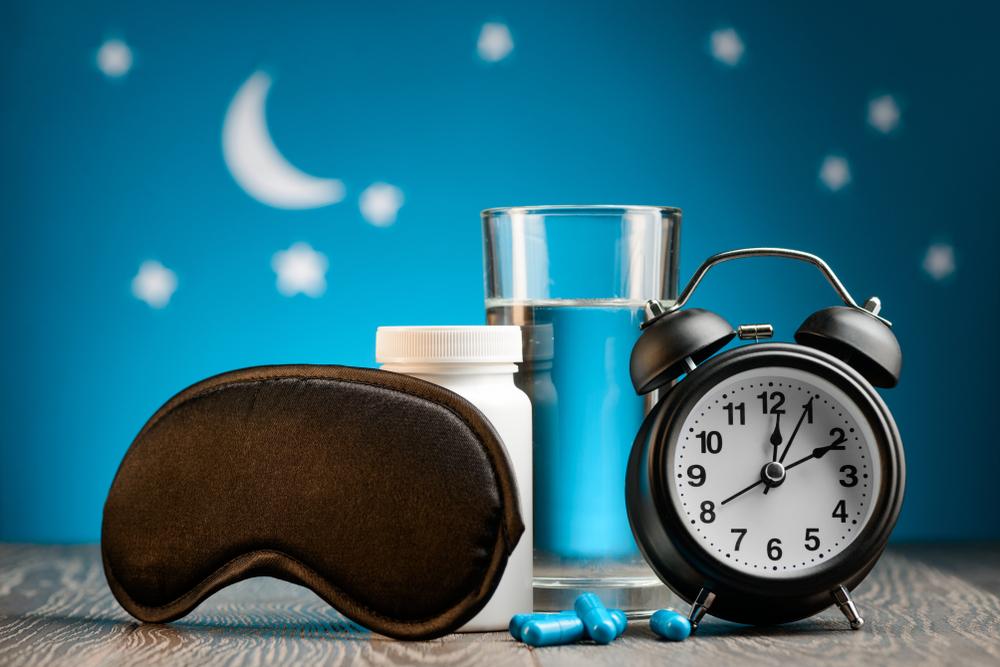The Impact of NMN on Sleep and Circadian Rhythms: A Game-Changer for Night Owls?

Greetings, sleep enthusiasts and insomniacs alike! If you've ever experienced the frustration of tossing and turning all night, or you simply can't resist the allure of late-night screen time, then today's topic is just for you. We'll be exploring the fascinating world of NMN (Nicotinamide Mononucleotide) and its impact on sleep and circadian rhythms. So, grab your favorite sleep mask, tuck yourself in, and let's get started!
The Science of Sleep: A Quick Refresher
Before we delve into the wonders of NMN, let's take a moment to refresh our memories on the science of sleep. Our bodies operate on a 24-hour cycle known as the circadian rhythm, which governs various physiological processes such as sleep, metabolism, and body temperature. A crucial component of this rhythm is the hormone melatonin, which helps signal to our bodies that it's time for some much-needed shut-eye.
Now, enter NMN: a molecule that acts as a precursor to NAD+ (Nicotinamide Adenine Dinucleotide), a coenzyme that plays a key role in energy production, DNA repair, and cellular communication. But what does this have to do with sleep, you ask? Let's find out!
NMN and Sleep: A Match Made in Dreamland?
Circadian Rhythm Regulation
If you're a serial snooze button hitter, this one's for you. One study published in the Oxidative Medicine and cellular longevity Journal by Poljsak, Borut et al. in 2020 suggested that NMN may help regulate our circadian rhythms by increasing NAD+ levels. This, in turn, can improve the function of our "master clock" – the suprachiasmatic nucleus (SCN) – which is responsible for keeping our bodies in sync with the 24-hour cycle. The result? Potentially better sleep and increased alertness during the day.
Melatonin Production
Remember our good friend melatonin? Well, NMN might just be the perfect wingman. A study published in the Nutrients Journal by Kim, Mijin, et al. in 2022 has shown that NMN can promote melatonin production, helping our bodies prepare for a restful night's sleep. So, instead of counting sheep, you might find yourself drifting off to dreamland with ease.
Sleep Quality
Ah, sleep quality – the elusive goal for many a restless soul. It turns out that NMN might hold the key to unlocking better, deeper sleep. By improving mitochondrial function and energy production, NMN may help our bodies repair and rejuvenate during sleep, leaving us feeling refreshed and ready to tackle the day.
Sleep-Wake Cycle Optimization
If you're a night owl struggling to adapt to an early bird world, NMN could be your saving grace. By promoting optimal circadian rhythm function, NMN supplementation may help realign your sleep-wake cycle, making it easier to rise and shine with the sun (or at least, not hit the snooze button five times).
A Word of Caution
While the potential sleep-related benefits of NMN are undoubtedly intriguing, it's important to remember that research in this area is still ongoing. As always, consult with a healthcare professional before adding any new supplement to your routine. Sweet dreams!
Conclusion
NMN may very well be a game-changer for those seeking to improve their sleep and circadian rhythm function. From regulating our internal clocks to promoting melatonin production and optimizing sleep quality, NMN is a promising ally in the quest for a good night's rest. So, if you're ready to take your sleep game to the next level, it might be worth exploring the world of NMN supplementation. Sleep tight, and don't let the bedbugs bite!
References
- Poljsak B, Kovač V, Milisav I. Healthy Lifestyle Recommendations: Do the Beneficial Effects Originate from NAD+Amount at the Cellular Level?. Oxid Med Cell Longev. 2020;2020:8819627. Published 2020 Dec 12. doi:10.1155/2020/8819627
- Kim M, Seol J, Sato T, Fukamizu Y, Sakurai T, Okura T. Effect of 12-Week Intake of Nicotinamide Mononucleotide on Sleep Quality, Fatigue, and Physical Performance in Older Japanese Adults: A Randomized, Double-Blind Placebo-Controlled Study. Nutrients. 2022;14(4):755. Published 2022 Feb 11. doi:10.3390/nu14040755

